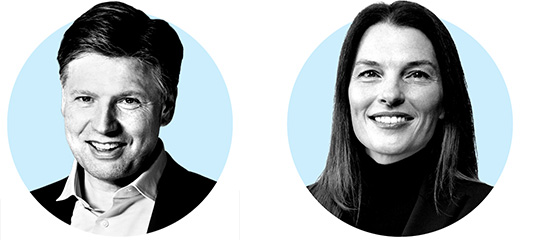 | |
| | Brought to you by Sven Smit, chair of insights and ecosystems and of the McKinsey Global Institute, & Tracy Francis, chief marketing officer
| | | | | | | |
| | | This week’s headline findings
| | | | | | | | | Do these insights resonate with you? What else should we be writing about now? Tell us by emailing insightstoimpact@mckinsey.com.
With McKinsey, it’s never just tech. Find out how we apply strategy, deep domain expertise, and more to help clients outcompete with technology and transform their companies.
| | | Many people in lower- and middle-income countries have built better lives thanks to economic growth, but in wealthier countries—the McKinsey Global Institute estimates—about 20 percent of the population consistently falls below the “empowerment line,” a threshold at which people can afford necessities and start saving. That’s because essentials get more expensive as countries grow wealthier. But if all countries with pricier goods and services could cut those costs to match nations with similar income levels but cheaper necessities, about 230 million additional people could rise above the empowerment line, say senior partners Kweilin Ellingrud and Marco Piccitto and coauthors. Although the public sector would need to play its part in making this happen, the private sector can help by striving to offer affordable goods and services in housing, energy, food, healthcare, and communication.
Underdeveloped leadership is a key reason for the 80 percent failure rate of start-ups, making intentional investment in leadership development crucial. When founders delegate effectively, they not only free up their own time and energy but also empower their employees to take on more responsibility and make decisions on their own. This fosters a sense of trust and autonomy and also allows for growth and innovation within the company, say senior partners Alok Kshirsagar and Arne Gast and coauthors. Well-developed leadership has a profound impact. McKinsey research shows that organizations performing in the top quartile of leadership have almost double the EBITDA of others. But it’s a tricky balance to strike because effective leadership at a start-up needs to allow for rapid transformation while also respecting the entrepreneurial spirit that led to the start-up’s creation.
The apparel industry faces challenges due to supply chain disruptions. To thrive, brands must rethink sourcing strategies, become more efficient, collaborate with suppliers, and embrace digital solutions, say senior partners Karl-Hendrik Magnus and Patricio Ibáñez and coauthors. Apparel businesses understand the urgency and are focusing on efficiency, supply chain resilience, and sustainability, according to McKinsey’s latest global survey of apparel chief procurement officers and its annual apparel sourcing roundtable. AI can help companies analyze consumer data and market trends, allowing designers to create products that are innovative and in demand. By streamlining the design process, technology enables businesses to quickly adapt to changing consumer preferences and market conditions. Embracing digital solutions helps reduce costs and increase efficiency in supply chains. In the near term, brands should set data-driven sustainability goals, use digital tools for sourcing, and establish strong supplier relationships—practices that can help brands reinvent their supply chains and emerge stronger from current challenges.
| | |
| | | | | | | | Partners Bengi Korkmaz and Eren Çetinkaya have laid out a scenario that Türkiye could use to reach its goal of achieving net-zero emissions by 2053, which involves spending about 7 percent of GDP on energy, materials, land use, and infrastructure development over the coming decades. | | | | | | |
| | | | | | | A recent edition of Author Talks features Marine Corps veteran and Microsoft executive Nate Boaz sharing life lessons from his new book, Running Toward Fire: Following the Warrior Path (Barbary Tavern Publishing, May 2024). Speaking with McKinsey senior partner Scott Blackburn, Boaz explains that his book is more than just a military memoir—it’s about the idea that when people serve a purpose that transcends the individual, they can achieve amazing things. Boaz explores how his two grandfathers, both World War II veterans, encouraged him to serve something bigger than himself and taught him that great leaders need to balance humility with courage—you can’t have one without the other.
| | | — Edited by Jana Zabkova, senior editor, New York
| | | | | | |
| | | | |
| |
| | |
This email contains information about McKinsey's research, insights, services, or events. By opening our emails or clicking on links, you agree to our use of cookies and web tracking technology. For more information on how we use and protect your information, please review our privacy policy. |
|
You received this email because you subscribed to our McKinsey Global Institute alert list. |
|
|
Copyright © 2024 | McKinsey & Company, 3 World Trade Center, 175 Greenwich Street, New York, NY 10007 |
|
|
|
|






